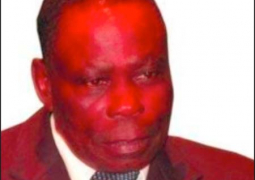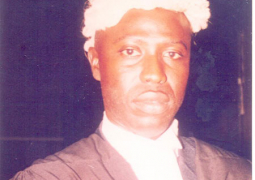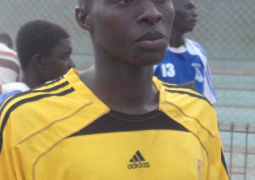I
closed from work late at night, and my mother informed me that “there was a young
man looking for you these days.”
“He
did not mention your name, but instead he said, ‘I am asking for the journalist
that lives here’.”
Luckily
for me, the other day, he met me at home and, the moment I saw him, I
remembered that we met at the court where I was assigned by my paper to cover a
certain case.
This
man in his 30s looks pale to me, unlike before when I used to see him. His eyes
are red and sunken, and that tells me that he has been crying and suffering in
silence, because he is the son of a woman behind bars serving her three-year
jail term in silence.
He
looked worried, and I said to him: “My mother has been telling me that you have
been looking for me, all this while, and I was worried because I think that
maybe as a journalist you need my service urgently.”
He
looked at me, and said, “I needed to talk to you because you were present, from
the day she was taken to court to the day she was convicted.”
I
then asked who she is. He told me, “I am talking about my mother, the woman who
gave birth to me. I miss her so much and, whenever I pay her a visit at the
prisons where she is kept and serving her sentence, I could not bear the pain
of seeing her in such a state.”
“I
could not bear the pain of leaving her behind, the thought of her being alone
in such a place; she has not been able to walk freely and breathe fresh air
like me.
“I
miss my mother. I miss waking up in the morning and greeting her and watching
her pick up her stuff and head to the market, where she earns a decent living
that benefits the family.
“I
am a man that thinks that there is nothing in this world that can break me
down; but living and waking up every day without seeing and feeling the
presence of my dear mother breaks me down completely, and I am just like a dead
man walking.
“Life
is meaningless without her, because she means the world to me.
“So
I came here to talk to you, and also ask this question: do you think my mother
will see the daylight and walk freely, as she used to, again?”
I
looked at him and listened to the suffering and fear that took over his manly
voice, and I said to him, “with God everything is possible.”
I
was there when the three of them were convicted, and sent to prison. I was
there when the mother of the youngest of all of them walked in with lots of
foodstuff in her hand.
This
woman at every court sitting shopped for her daughter who is married with kids,
as if she is shopping for a month-old-baby.
Her
eyes glistened with tears, but she stood by her daughter and never for once
gave up on her; not even on the day she was condemned to prison for three
years.
I
was there when a husband, sister, brother, son, mother and father stood
helpless and watched their loved one, a woman, being condemned to three years
in prison.
I
saw the bond that a mother and her child shared, and it is unimaginable. I was
there when a mother cried for help, and called on the relevant authorities and
whoever cared to listen to please help bring back her daughter to her.
It
has been four months or more since they were convicted and sent to prison, and
the society seems to have forgotten about them; but a son, mother and husband
are still crying out to you, the main character, to please extend your love for
Gambian women and pardon their mothers, daughters and loved ones from prison.
They
are still hopeful, and every day they go to bed they look forward to being
woken up by the news that they had been pardoned and returning home.
For
the woman in the dock with her child on her lap, I remember the theme for the
International Children’s Day of Broadcasting many years ago: “Let’s play; every
child has the right to play.”
It
came to my mind when I saw a child taken away from her mother, just because she
is playing and speaking her own language, while sitting on her mother’s lap,
when she was in the dock answering to charges against her.
An
old woman was asked to take her away from her mother, because of the noise the
child was making. What future does that child have as at now? He or she is a
mere child!
He
or she is months old, so innocent and pure in body, mind and soul.
He
or she cannot even hurt a fly, and it is not his or her fault that her mother
is in such a state; and yet she was not given the chance to play uninterrupted.
The
woman in the dock is a mother taking care of a month-old-baby, whose future
depends on every minute, hour, day, month and year the child spent with her
mother.
She is a woman in a state of confusion, a single
mother taking care of a child whose father was condemned to a three-year jail
term.
Why
are we not listening to this child? Is it because we cannot speak his or her
language? Or is it because we do not care about what the child is saying?
If
we pay attention to what the child is putting across to us whilst playing, then
we will give this child and her mother an environment conducive for this child
to grow in peace and harness his or her potentials.




